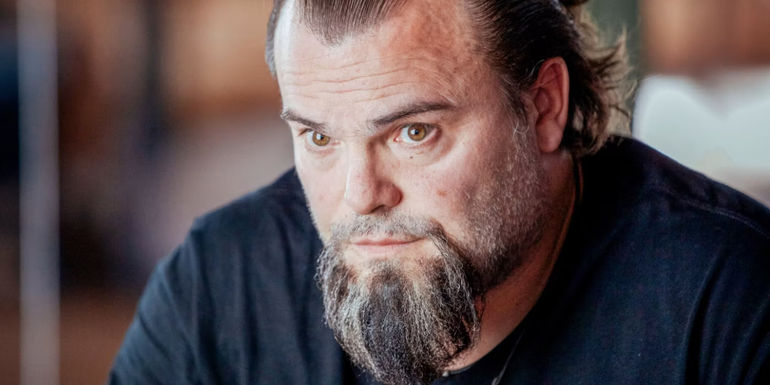
Dronez: The Hunt for El Chignon - A Parody Masterpiece

Exploring the satirical brilliance of Documentary Now! and its parody of Vice Media's journalism style in the episode 'Dronez: The Hunt for El Chignon'.
The Genius of Documentary Now!
Documentary Now! is a groundbreaking series that skillfully infuses humor into the world of documentary filmmaking. With creators Bill Hader, Fred Armisen, Seth Meyers, and Rhys Thomas at the helm, the show stands out for its ability to cleverly parody various documentary styles while maintaining an authentic and satirical tone. Each episode is a standalone masterpiece that pays homage to classic documentaries, reimagining their essence with a comedic twist. The attention to detail, sharp writing, and exceptional performances by the cast elevate Documentary Now! to a league of its own in the genre of parody television.
Jamison (Jack Black) looks serious in Documentary Now!
One of its most memorable parodies is found in season 1, episode 3, titled 'Dronez: The Hunt for El Chignon.' This installment brilliantly lampoons the modern journalism landscape, specifically targeting the trendy on-the-ground reporting style. The narrative follows a team of journalists from the fictional Dronez channel as they venture into a perilous territory in pursuit of the infamous drug lord, El Chignon. The episode skillfully blends absurdity with insightful commentary, offering a humorous yet critical perspective on the often sensationalized world of guerrilla journalism.
Two hipster journalists look worried in Documentary Now!
The Parody of Vice Media
The standout parody in 'Dronez: The Hunt for El Chignon' is a pitch-perfect satire of Vice Media and its distinct approach to journalism. Vice, known for its daring and immersive reporting, frequently sends its journalists into high-risk environments to capture raw and unfiltered experiences. Documentary Now! adeptly mimics this style, exaggerating the lengths journalists go to for a compelling story. The episode humorously portrays the audacious courage and at times questionable ethics associated with Vice-style reporting, shedding light on the absurdity and potential perils of such an approach.
Moreover, the parody is enriched by the meticulous attention to Vice's stylistic elements. From the gritty handheld camera work to the edgy on-the-fly interviews, 'Dronez: The Hunt for El Chignon' impeccably replicates the aesthetic of Vice. It also satirizes the occasionally zealous nature of Vice reporters, depicting them as more focused on the thrill of the chase and their personal narratives than on the broader context or implications of their stories. This satirical portrayal provides a humorous yet thought-provoking critique of Vice's style, prompting contemplation on the fine line between immersive journalism and sensationalism.
Vice's Response: Embracing the Parody
Vice Media's reaction to 'Dronez: The Hunt for El Chignon' was unexpectedly supportive, showcasing their ability to appreciate satire directed at their own brand of journalism. Their promotion of the episode not only highlighted their understanding of the parody's essence but also demonstrated their willingness to engage with it in good humor. This promotion encapsulates the spirit of Vice — irreverent, bold, and unapologetically self-aware. It acknowledges the exaggerations and absurdities in their style of journalism that Documentary Now! effectively lampoons, indicating a level of self-reflection and humor about their own practices.
This reaction to the Documentary Now! episode from Vice not only magnifies the impact of the parody but also fosters a unique dialogue between satire and its subject. By embracing the parody, Vice showcases confidence and openness to critique, emphasizing the importance of humor and self-reflection in journalism. Their response signifies the evolving nature of media and journalism, where the boundaries between serious reporting and entertainment often blur, and the ability to laugh at oneself becomes an essential trait in navigating the complex media landscape.










